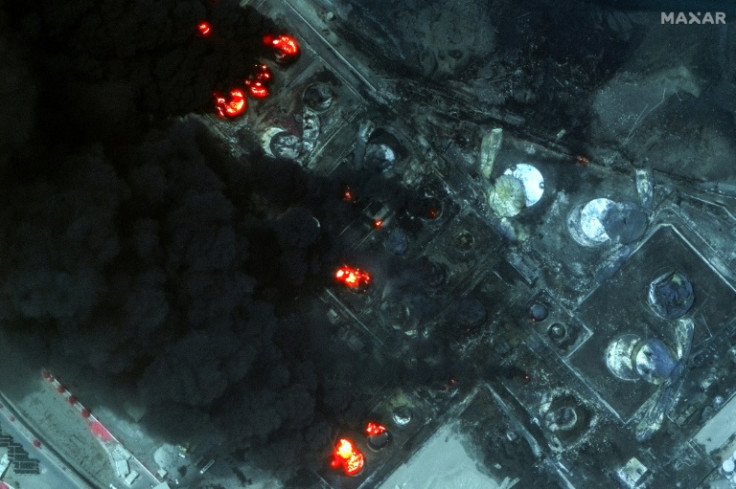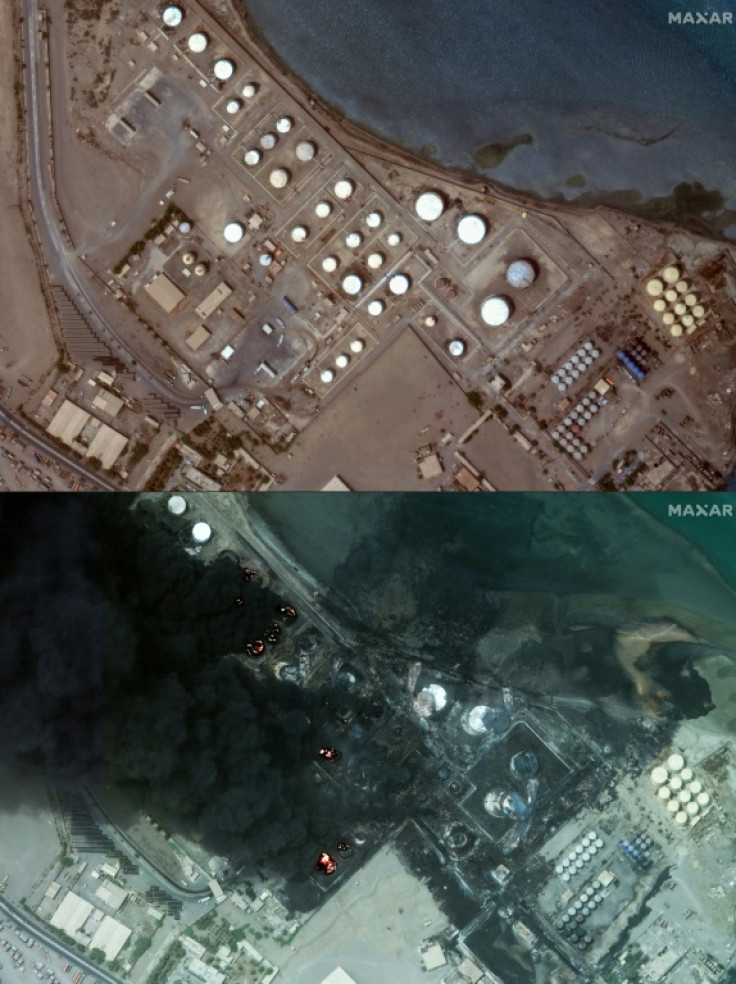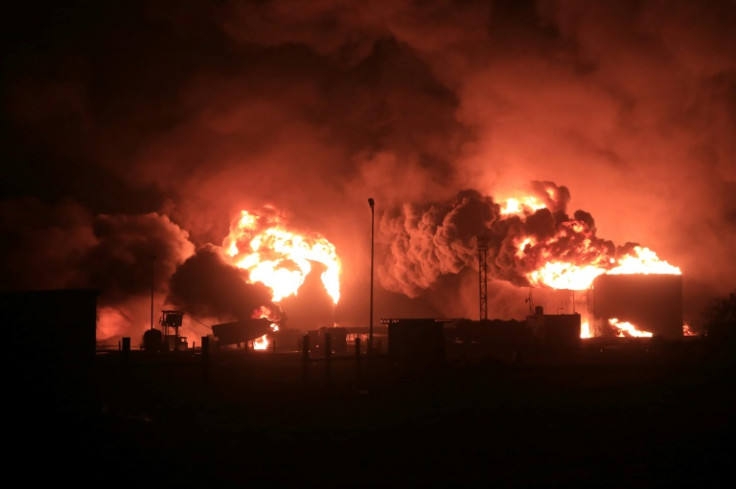
Israeli strikes on Saturday hit a power plant and fuel storage facilities in Hodeida, the main port under the control of Yemen's Iran-backed Huthi rebels.
Here is what we know about the damage caused by the attack, which set oil tanks ablaze for days and came a day after the first fatal strike by the Huthis in Israel.
Saturday's long-distance strike, the first by Israel on the Arabian Peninsula's poorest country, hit the Hodeida harbour, a key gateway for fuel and international aid into Huthi-held parts of Yemen.
The Huthis, who control swathes of the country including much of its Red Sea coast, said the attack struck fuel storage facilities at the harbour, killing six people, all of them port employees of the Yemen Petroleum Company.
A nearby power plant was also targeted, according to the rebels.
AFPTV images showed huge flames and black smoke spiralling into the sky from burning oil tanks at the port. Debris covered the dock where equipment was damaged.
High-resolution satellite images taken by Maxar Technologies showed flames consuming a heavily damaged fuel storage area, which still appeared to be burning on Monday, according to an AFP correspondent.
A Hodeida port employee who was at the harbour the day of the attack said several tanks exploded sequentially.
But "the port, with its dock, containers, and ships, is intact," said the employee who spoke on condition of anonymity over security concerns.
Analysis of satellite imagery from Planet by Dutch peace organisation PAX showed at least 33 destroyed oil storage tanks, said Wim Zwijnenburg, a project leader with the organisation.
"We expect (to find) more damage, as not all storage tanks are visible because of heavy smoke" from the fire and burning fuel, Zwijnenburg told AFP.
According to Zwijnenburg, the bombing has resulted in tens of thousands of litres of oil burning.
"Localised coastal pollution is expected from wastewater and leaking fuel," said the expert, who specialises in the environmental impacts of war.
Maritime security firm Ambrey said satellite imagery following the strikes showed "extensive damage to the oil products storage facilities," clarifying, however, that "the bulk terminal storage facilities appeared to be unaffected."
The attack destroyed most of the port's fuel storage capacity of 150,000 tonnes, leaving the Hodeida governorate with an overall capacity of 50,000, the US-based Navanti Group said, citing merchants.
The Israeli army on Sunday published a video showing them hitting two container yard cranes at the harbour.
The Navanti Group said five cranes are now "most likely non-operational."
Ambrey said two merchant vessels were alongside the yard at the time the cranes were hit, but it did not specify if they were damaged.
The British agency had earlier observed four merchant vessels in the port at the time of the strikes and another eight in the anchorage.
"No vessel arrivals or departures have occurred since the Israeli attack on Hodeida," Ambrey reported on Monday.
The World Food Programme on Monday told AFP that there had been "minor" damage to a crane on one of its aid vessels in the port and that its fuel storage facility was impacted.
The ship "remains operational," but "all 780,000 litres of fuel stock was likely destroyed," said Pierre Honnorat, WFP's Yemen country director, adding that all the agency's staff were safe and accounted for.
"WFP will source enough fuel supplies to ensure this loss has no significant effect on our operations," he said.
Yemeni port authorities have said Hodeida "is operating at its full capacity", according to the rebels' Saba news agency.
"We are working around the clock to receive all ships and there is no concern about the supply chain and supplies of food, medicine, and oil derivatives," port official Nasr al-Nusairi was quoted by Saba as saying on Sunday.
A Huthi transport official on Monday said "work is underway to receive and unload food and fuel shipments within 24 hours."
While firefighting teams were still struggling to contain the blaze at the harbour, a fire that erupted at a nearby power plant was nearly under control on Monday, according to Mohammed Albasha, the Navanti Group's senior Middle East analyst.
"Repairs have started" as electricity gradually returns to the city following outages over the weekend, the analyst said.










